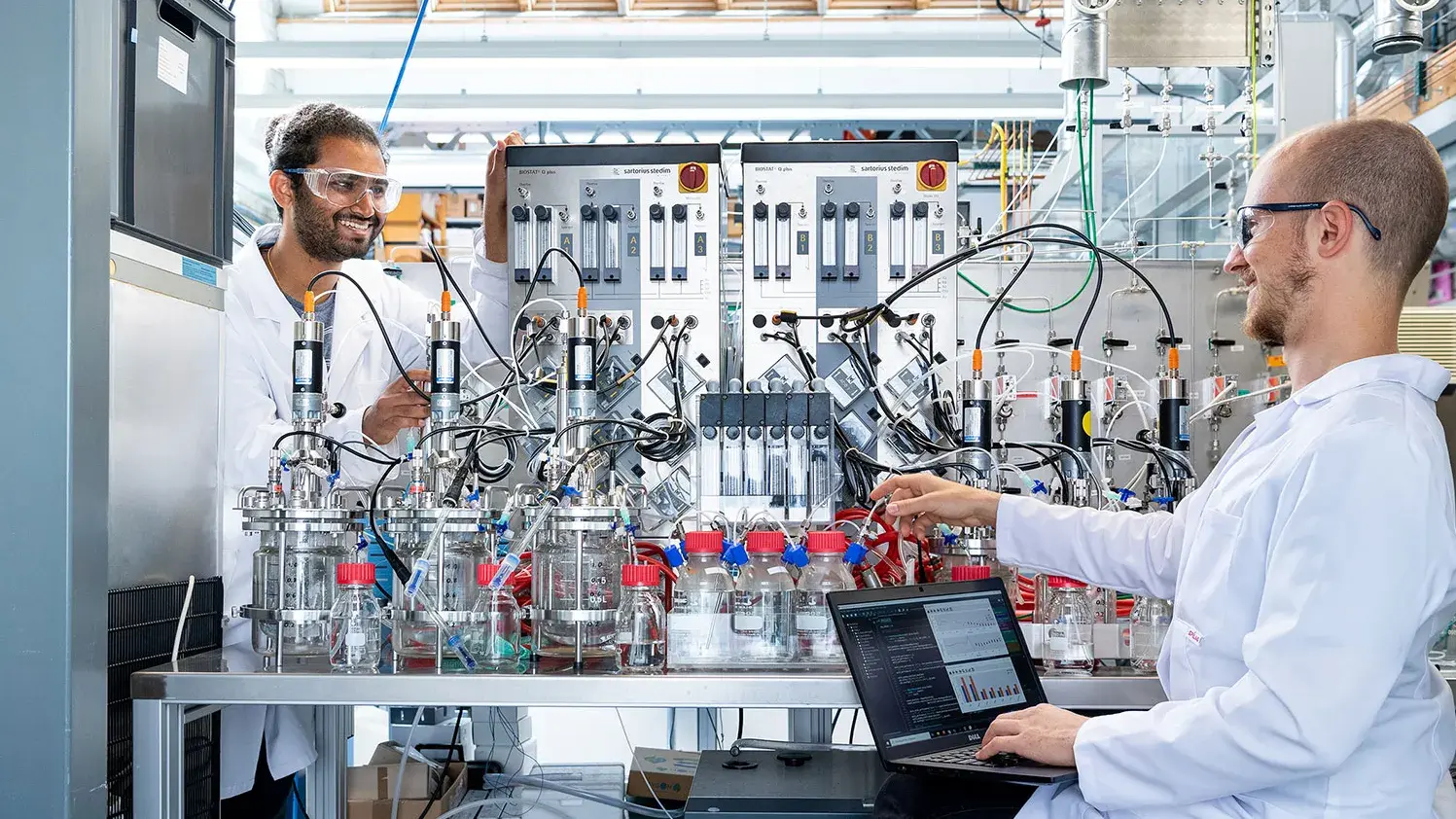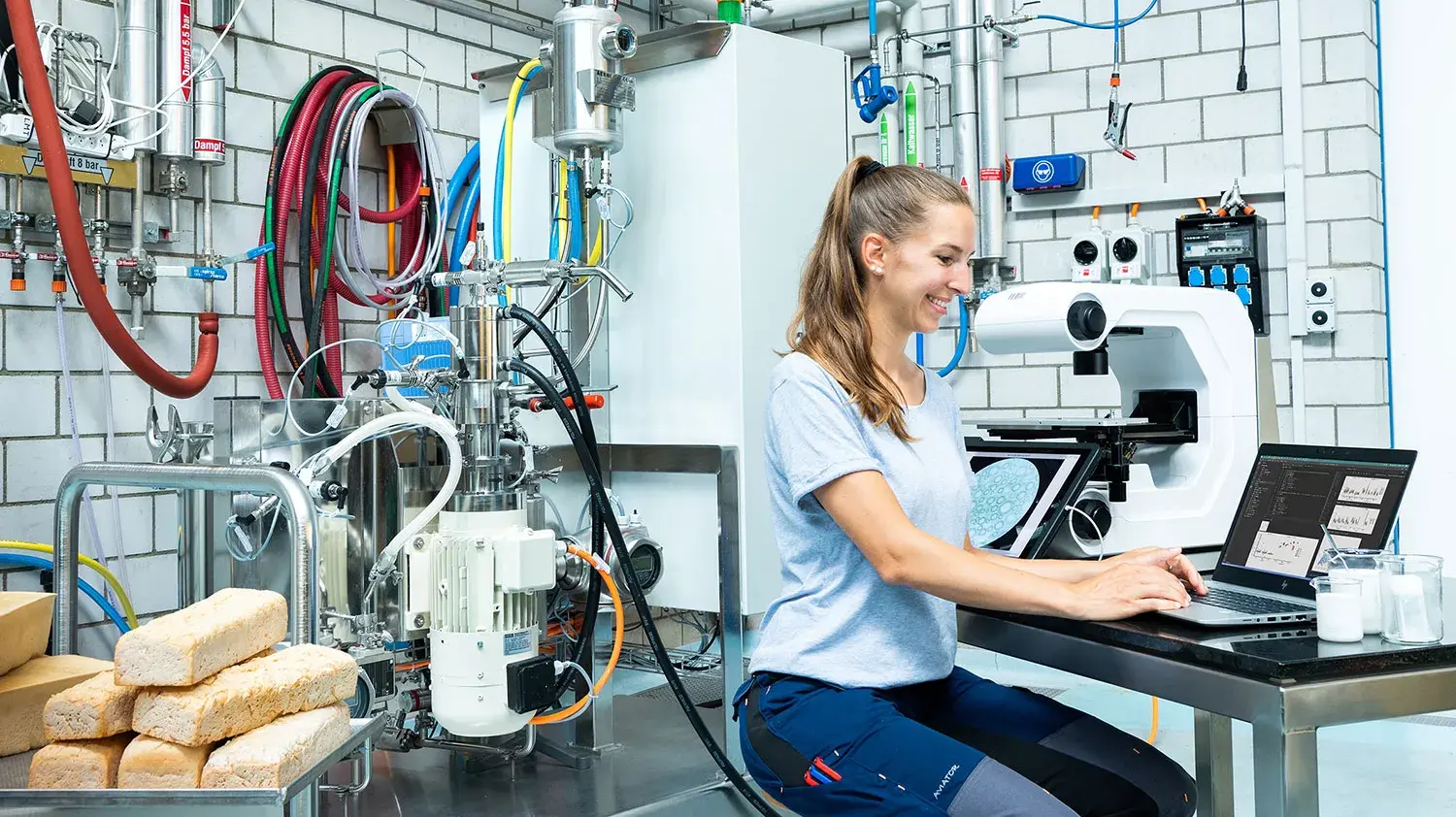Digital Labs and Production Specialisation
Use your data-based knowledge in a targeted manner and learn to optimise or reinvent various laboratory and production processes.
The focus of the compulsory modules is on Data & Process Digitalisation and Data & Laboratory Digitalisation, with application areas in biotechnology, the pharmaceutical industry and the food industry. You will be fully prepared to participate in research and development, to help shape automation in laboratories and production processes, and to optimise product development processes, for example for pharmaceuticals.
You will learn about...
- smart production and manufacturing concepts and applications in the life sciences.
- digital twins (computer models for real processes that can influence each other) in the laboratory and in production processes.
- thermal and mechanical process technology (heating with heat conduction, infrared and microwave radiation, with hot liquids or vapours, cooling, drying, material conveyance, mixing, intermediate storage, comminution, etc.).
- reaction kinetics and reactor technology.
- microbiological processes, enzyme reactions and microbial kinetics.
- process control and control technology and gain understanding of measurement chains.
- fundamentals of laboratory equipment, laboratory methods and aspects of laboratory automation.
Examples of projects you could work on in the future
- By using new developments in robotics and machine learning, you could optimise fully automated PCR tests.
- A new process for chocolate production has been invented and is already working in the laboratory. You could scale up the flavour distillation process step for mass production. You would then compile theoretical basics and simulate the distillation in the computer. You could also develop the necessary online parameter measurements and plan the processing of the Big Data volumes generated in large-scale production processes.
- In your company, you could analyse material flows and, at the same time, data and information flows. You would be able to recognise where state-of-the-art sensors need to be installed to make the quality of final product predictable. The rejects and scrap could be reduced by at least 20% (e.g. broken goods in pasta production) by reacting to deviations from the target values at an early point in process and by adjusting machine parameters.
Career
Companies in the chemical, biotechnology and pharmaceutical sectors, biomedicine, the food industry and the health sector are typical employers. Would you like to know what career path you could follow after graduation? An overview is provided on our careers page.
The compulsory modules within the specialisation are supplemented by elective modules, which provide you with the opportunity to develop further, either in specific topics within the specialisation or supplementary topics. This enables you to create an individual course profile according to your interests.
It is possible to combine certain elective modules into a minor. A minor corresponds to at least 12 ECTS credits, of which about half is completed in the form of a project paper.
Notes on the module overview
| Semester | ECTS to be achieved (180 in total) in modules |
|---|---|
| 1. - 3. Semester | 30 ECTS compulsory modules each |
| 4. - 6. Semester | 30 ECTS each, compulsory modules and compulsory elective modules incl. minor |
The module examinations take place at different times after the end of the lecture period. A module is considered passed if a grade average of at least 4.00 has been achieved, no individual grade is below 2.5 and all pass/fail activities have been completed.
Ready for the next step?
- Visit our information events in spring or autumn.
- Questions about the programme? Use the contact form.
- Register for the bachelor's degree programme using the online portal.

